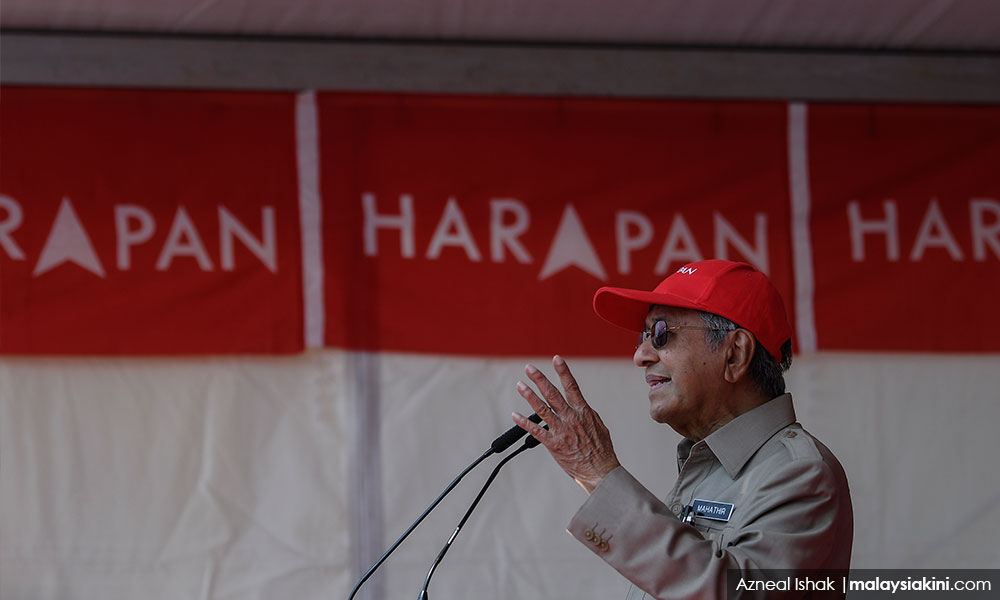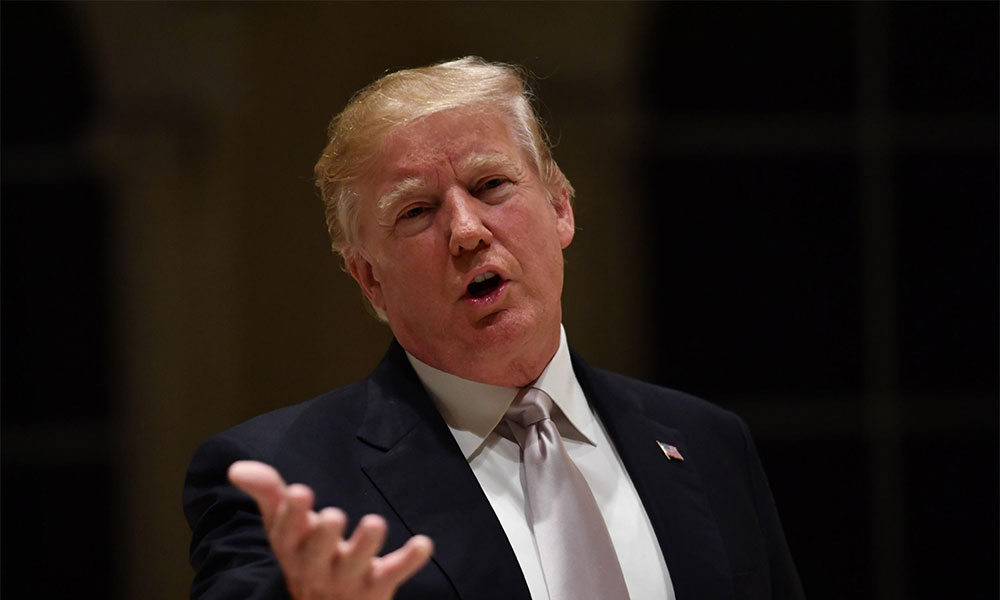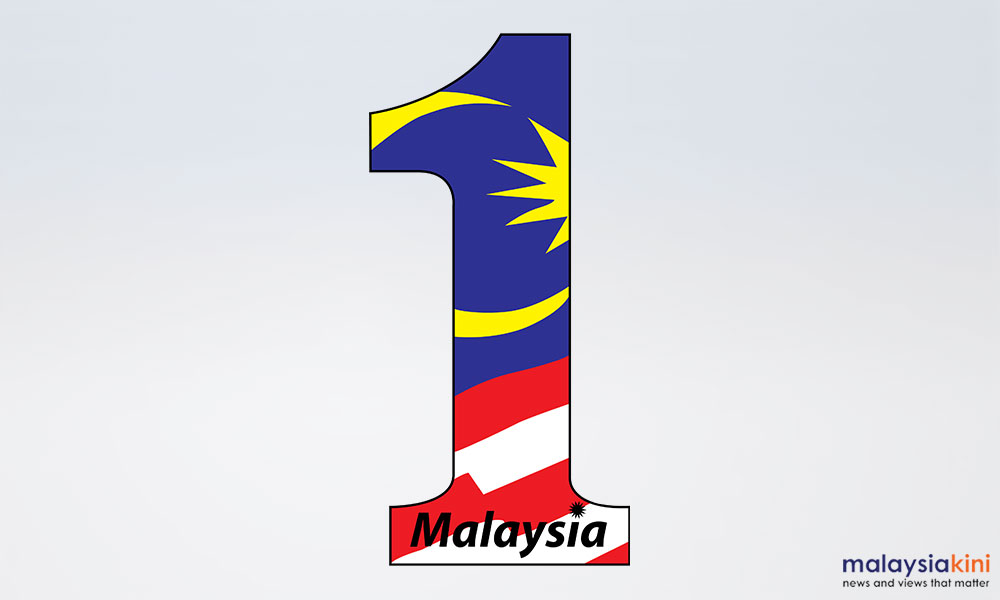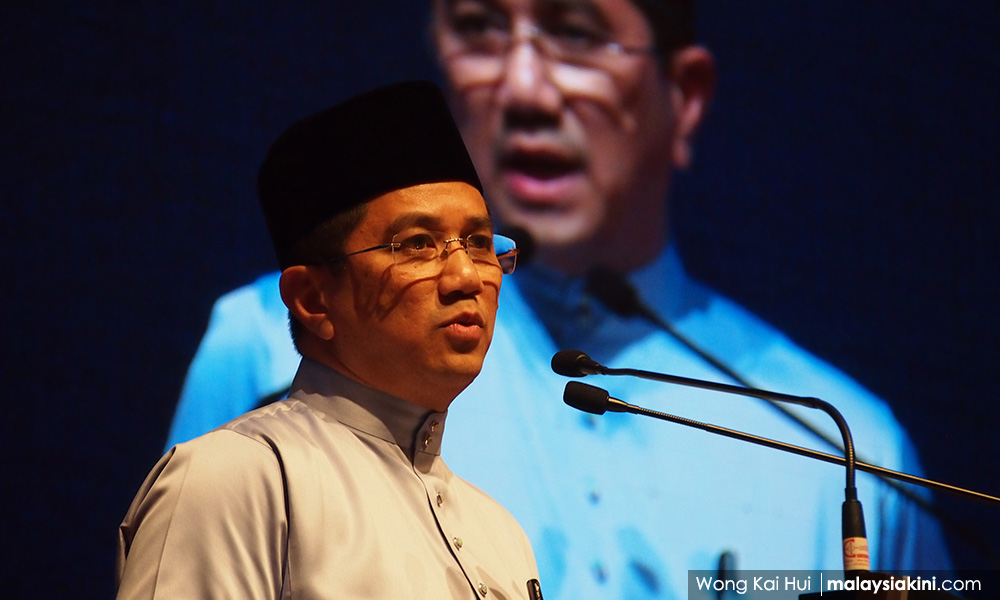
Published by Malaysiakini, images from Malaysiakini.
On Friday, Prime Minister Dr Mahathir Mohamad announced the setting up of a communications unit to “handle disinformation hurled by the opposition and to share the federal government’s new achievements”.
“We found that the people were not aware of what has been done by the government and we do not have a joint (mechanism) to explain.
“That’s why we are having an entity to check on the accusations hurled at Harapan as well as (to inform) the public on what we have done since we took power,” the Pakatan Harapan chairperson said.
I recommend three main steps that the ruling coalition needs to take, in order for this unit to be effective, and to win the communications war.
One, understand what has changed and the rules of political communication; two, articulate a comprehensive roadmap; and three, communicate how life is going to be different for the Malays.
For the first step, Harapan needs to understand what has changed, now that they are in the government.
Setting up a communications unit is the right move; thinking of it as ‘an entity to check on the accusations hurled at Harapan’ is not.
The first rule of political communication should be: do not let your adversaries set the agenda.
BN used to do this too; they used to talk about the importance of having cybertroopers and such be deployed to ‘answer the opposition’. A fat lot of good that did them.
In politics, if the mentality is one where you need to constantly defend yourself on the backfoot and dance to the opponent’s tune, you have already lost.
Before and after he was President of the United States, there was no end of criticisms thrown at Donald Trump day after day.

He did not win by answering these criticisms (I personally believe said criticisms were pretty much unanswerable). He won by driving home his points to his core constituents, and largely ignoring the rest.
The opposition always has some key advantages
Well under a year ago, those in power today were in the opposition – most for years at least, and many for decades.
Surely they cannot have already forgotten the key advantages of being in the opposition?
An effective integrated Harapan communications unit should understand at least two such advantages.
The first advantage is that it is always easy to ride on discontent towards the government. Malaysian citizens, like citizens anywhere in the world, are never happy with their government.
This is an exaggeration and poetic licence of course; but the general gist is not misleading.
For politicians, tapping into, fermenting and manipulating public discontent is second nature. When you’re in the opposition, it’s like shooting fish in a barrel, because there will never be a shortage of source material – almost no matter how well the government is doing.
In Malaysia, there is the added factor of the massive expectations that followed Harapan’s takeover of the government. Given the staggering amount of hope (somewhat ironically) placed on Harapan’s shoulders in this historic change, disappointment was almost inevitable.
The second advantage is that the accountability gap between the opposition and the government is huge.
The opposition can fire on all guns, claiming the government should be doing this and that, without having the faintest concern about whether said ‘this and that’ is in fact possible or viable.
Luckily for Harapan, in Malaysia today, with Pahang and Perlis under BN and Kelantan and Terengganu under PAS, the opposition does not operate with zero accountability.
Big picture narrative
The second step: Harapan needs to understand the importance of a big picture narrative, as opposed to piecemeal, ad hoc communication.
Malaysiakini‘s coverage on a report released by The Centre for Governance and Political Studies recently states:
“The Cameron Highlands by-election results was a wake up call for Pakatan Harapan to go beyond its message of good governance, said the Centre for Governance and Political Studies (Cent-GPS).”
I have only seen excerpts of the report, so while I cannot speak authoritatively as to whether this characterisation of their message is accurate, in any case, I would not say that Harapan needs to go “beyond its message of good governance”, because this implies that they already have a message of good governance.
They do not.
As I wrote previously, if you go down to the ground and ask ‘What has the new government accomplished?’, it seems likely you will be met with more than a few blank stares.
What Harapan needs is an all-encompassing meta, which encapsulates the government’s goals and vision. Every effort of the government should be seen as contributing towards these well defined, overall goals.
It’s easy to make fun of 1Malaysia or Wawasan 2020 (especially the former), but objectively, we cannot deny the manner in which these slogans permeated Malaysian imagination – everyone recognised them, and that was no small matter.

The challenge of course is to have something similar, but with substance – as opposed to the manner in which 1Malaysia was an empty gimmick that sought to distract from the excesses of the previous government.
As suggested previously, something like a New Malaysia Roadmap, that details exactly how we want to create the New Malaysia that was promised – and allows us to track our progress in a data-driven, objectively quantifiable manner – might be ideal.
The Malay dilemma
The third step: communicate how life is going to be different for the Malays.
In Malaysia’s here and now political context, Harapan cannot avoid the question of the position of the Malays.
What Harapan can do, is determine how they approach the question.
If their mentality is ‘Umno and PAS are hitting us hard on this, we need to respond to them’, then as argued above, they will run afoul of Rule No. 1 of political communication and face eventual and inevitable death by a thousand cuts.
What Harapan should do instead is take a step back, and really think about the question: what should the genuine, substantive difference be for Malays before GE 14, and after GE 14?
In other words: what should the new Malay look like?
I think answering this question in detail will require an article of its own, which will likely come next.
The very short version is that the new Malay should be more successful than the old Malay. This means being more productive, prosperous and proud than before.
Umno and PAS will no doubt continue pressing the Malay issue in a big way. For the reasons outlined in the first step above, it will always be easy for them as the opposition to claim that Malays are worse off under Harapan than they were under BN.
Again, Harapan should not focus on ‘countering’ the opposition. That said, if and when they do need to, it seems to me that the easiest answer to the claim that Malays are in a bad state is: And whose fault is that?
It is fair to compare the Malays under BN and the Malays under Harapan, but let’s not forget that one term lasted 61 years, while the other term is about nine months old.
Of course, Harapan can’t use this argument for long. Nine months will soon be a year, a year will soon be two, and so on.
That said, for Semenyih at least, this should be a reasonable line – but if, and only if, Harapan follows this argument with a well articulated, hard hitting vision of exactly how it plans to change things for the Malays.
Ultimately, I feel that properly done and well led, a new, integrated communications unit for Harapan is an excellent idea. Just remember: the best defence is a good offence.
Nathaniel Tan is Director of Media & Communications at EMIR Research, an independent think-tank focused on strategic policy recommendations based upon rigorous research.

